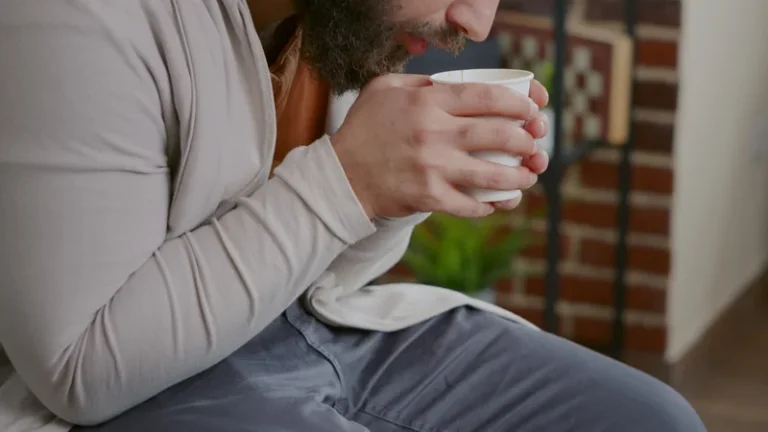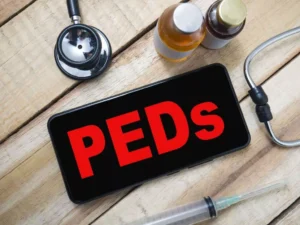
Enhanced motivation and sugar seeking are often achieved by forced deprivation, which has increased the number of lever presses for self-administration of sucrose solution [16]. However, these findings do not directly represent rodents’ motivation for a sugar reward but rather the number of unsuccessful lever presses executed under an FR1 schedule (i.e. the lever presses in between sugar receipt). Receipt of sugar reward was not dependent upon the number of additional presses between reinforcement.
Diet & Weight Loss
During the early days of addiction recovery, people often battle intense drug cravings and may be calorically deficient. Sugar affects the brain like addictive drugs⁴, which makes sugar particularly tempting for people with a substance use disorder. There are several reasons people in addiction recovery may develop a preference for sweet foods. Different substances can create various inclinations for sugar, and there is an underlying connection between addictive behaviors and sugar intake. Sugar alcohols have long been considered a safe addition to your diet — in moderation.
- Alcohol use disorder can also disrupt the delicate balance of neurotransmitters in the brain.
- A variety of foods can release DA in the NAc, including lab chow, sugar, saccharin, and corn oil (Bassareo and Di Chiara, 1997, Hajnal et al., 2004, Liang et al., 2006, Mark et al., 1991, Rada et al., 2005b).
- Dopamine also reduces activity in your brain’s extended amygdala, which controls your emotions and stress responses, per the National Institute on Alcohol Abuse and Alcoholism.
- For example, rats sensitized to 9-delta-tetracannabinol displayed a sensitized behavior when morphine was injected (208).
The upside of sugar alcohols
It is known that anticholinergic (antimuscarinic) drugs were the first medications used in the treatment of PD antagonizing mainly M1 receptors (134, 135). This indicates that DA normally exerts an inhibitory action on striatal ACh interneurons as demonstrated in rats (136). In addition, L-dopa induced hyperlocomotion in DA-deficient mice is suppressed by cholinergic agonists (137). Separately, anticholinergic drugs are abused (138) probably by increasing DA activity in the striatum (139), thus, an antagonistic association probably exists between DA and ACh in the NAc and striatum. Even after abstinence, people experiencing chronic opioid use may feel drawn to activities that trigger these receptors.
Neurotransmitter Changes in the Brain

A treatment center will attempt to verify your health insurance benefits and/or necessary authorizations on your behalf. We cannot guarantee payment or verification eligibility as conveyed by your health insurance provider will be accurate and complete. Payment of benefits are subject to all terms, conditions, limitations, and exclusions of the member’s contract at time of service.
The FA literature considers sugar (and other refined carbohydrates) to be a key facet of processed foods with high addictive potential, contributing to their GL (dose) and their rapid rate of absorption. Moreover, these aspects are distinct and dissociable in terms of their neural processing as demonstrated in two elegant sets of experiments. Domingos et al. [28] showed that melanin-concentrating hormone (MCH)-expressing neurons located within the lateral hypothalamus respond to extracellular glucose levels and project to dopaminergic (DA) neurons in the striatum and midbrain regions. The animals show a preference for sucrose over the non-nutritive sweetener, sucralose, and the glucose-sensing ability of these neurons is critical in determining this, as transgenic mice lacking MCH neurons do not show this preference [28].


The approach works for some (lucky) people, but it’s not the best call for most of us. Detoxing makes sense if you have an addiction to a dangerous substance, but we consume sugar every day in one form or another, so you’re never truly cutting it out of your diet. It’s harder to make good choices when you’re tired, and even harder to pass up the short-term energy boost sugary foods offer. Being well-rested will reduce your sugar cravings and — when they do happen — make them easier to ignore. You’re making a significant lifestyle change, and it will take time and effort. We’ve compiled a list of the mental, physical and dietary changes that will help you fend off sugar cravings and help you manage your eating habits.

Effect of drugs of abuse and withdrawal on acetylcholine release in the NAc
- We cannot discard FA because not all obese people are food-addicted and not all food-addicted are obese (251–253).
- Though they occur naturally in some foods and are made by your body, the levels present are vanishingly small.
- Sugar alcohols are sometimes referred to as artificial sweeteners, a category that includes aspartame and saccharin, but they’re actually not the same thing.
Earlier this year, the American Heart Association cited research that shows sugary soft drinks are responsible for 180,000 deaths worldwide each year. They recommend that adults consume no more than 450 calories per week from sugar-sweetened beverages. Although food addiction has been popular why do alcoholics crave sugar in the media and proposed to be based on brain neurochemistry (Hoebel et al., 1989, Le Magnen, 1990), this phenomenon has only recently been systematically studied in the laboratory. Neurotransmitters are chemical messengers responsible for transmitting signals between nerve cells.
Critical to these studies are the experimental designs used to model addiction-like behaviours in rodents. We believe that a working knowledge of these paradigms and their limitations is necessary to critically examine the literature on animal models of drug and sugar addiction. Thus, this section will provide an overview of https://ecosoberhouse.com/ common paradigms, and we will compare different aspects of drug and sugar addiction within this context. It is important to point out at the outset that sugar addiction literature is not as extensive as that of drug addiction literature, and therefore, not all aspects of addiction have been examined with respect to sugar.
Does sugar neutralize alcohol effects?
